Bulgaria is becoming ever more popular with expats for whom the cheaper cost of living and a good healthy lifestyle are a priority. So, what is it like to live in Bulgaria, and how do you go about moving and settling down there?
In this guide:
- Bulgaria's overview
- The legalities of moving to Bulgaria: visas and residency options.
- The cost of living: monthly expenses, rentals, and real estate.
- Bulgaria as a retirement destination.
- Infrastructure: travel connections, public transport, internet.
- Housing and property.
- Healthcare and education.
- Taxes and bank accounts.
- Where to live in Bulgaria – an overview of the most popular expat locations.
- Tips for moving.
Secure Peace of Mind with Best-Value International Health Coverage
International Citizens Insurance provide free, no-obligation quotes from the leading international health insurance providers with plans tailored to meet your needs. Trusted by thousands of expats worldwide.
Bulgaria's overview
Bulgaria makes it onto Expatra’s list of the cheapest countries to retire and is also on our hugely popular annual list of the best places to retire abroad.
With its relatively mild climate, Bulgaria is pleasant all year round. The daytime temperatures vary from 0-5°C in the winter and 25-30°C in the summer months.
According to (now 10-year-old) figures from think tank the IPPR, some 18,000 Britons have moved to Bulgaria, about half living here for half the year and the other half permanently.
That’s a surprisingly big number for a country of just seven million inhabitants - smaller than the city of London.
The largest community is in the capital, Sofia. Outside, expats are more widely dispersed than in many countries, from Varna, on the Black Sea, to ski resort Bansko.
But to settle well, you must truly integrate into the community - and learning the language properly is a must.
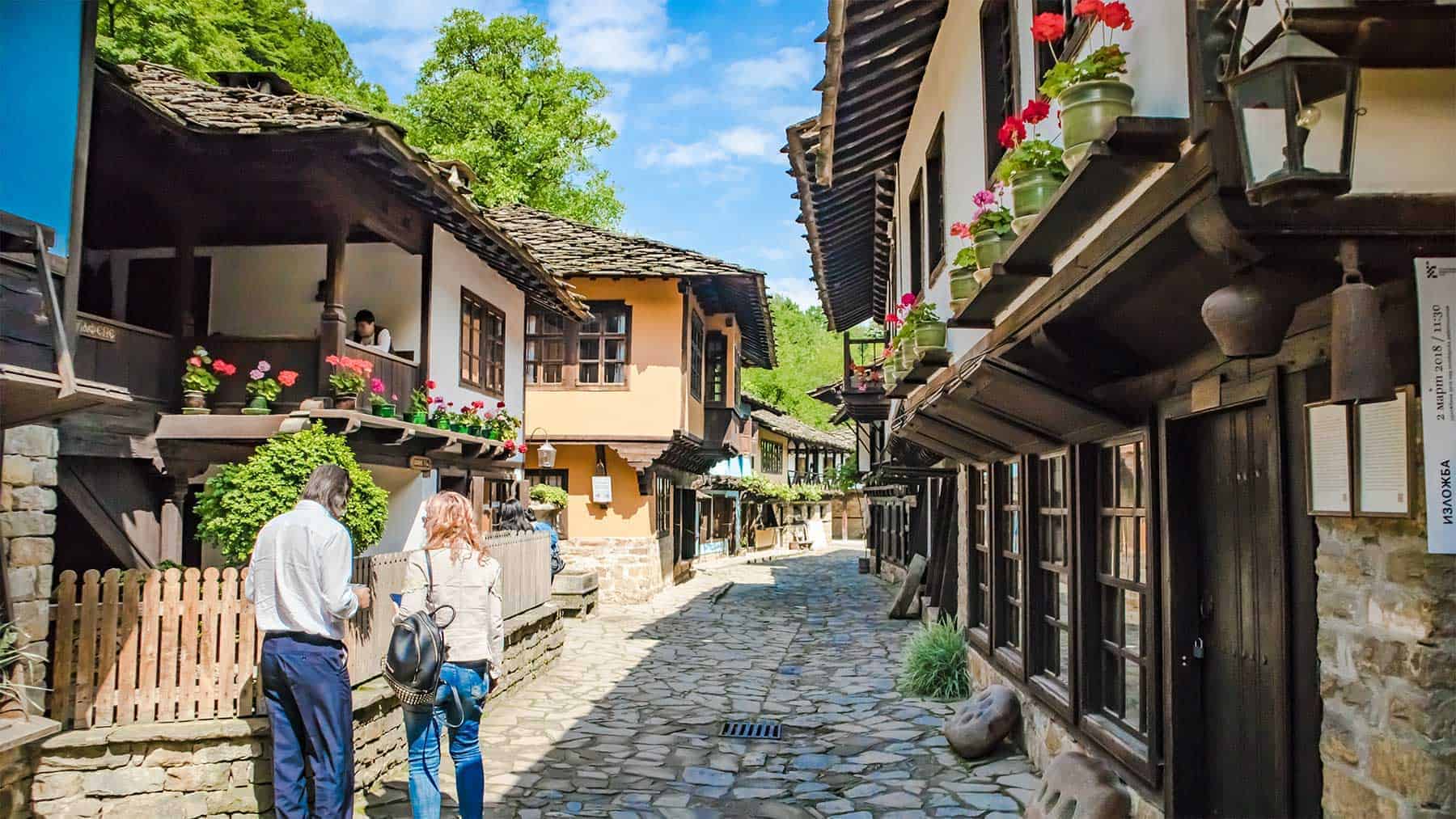
Bulgaria visas and residency options
Short stay in Bulgaria
Citizens of the following countries can stay in Bulgaria for up to 3 months without a visa:
- European Union (EU) member states: Austria, Belgium, Bulgaria, Croatia, Cyprus, Czech Republic, Denmark, Estonia, Finland, France, Germany, Greece, Hungary, Ireland, Italy, Latvia, Lithuania, Luxembourg, Malta, Netherlands, Poland, Portugal, Romania, Slovakia, Slovenia, Spain, Sweden
- European Free Trade Association (EFTA) member states: Iceland, Liechtenstein, Norway, Switzerland
- Andorra, Argentina, Australia, Brazil, Brunei, Canada, Chile, Costa Rica, Croatia, Cyprus, El Salvador, Guatemala, Holy See, Honduras, Hong Kong, Israel, Japan, Macao, Macedonia, Malaysia, Mauritius, Mexico, Monaco, Montenegro, New Zealand, Nicaragua, Panama, Paraguay, Samoa, San Marino, Serbia, Seychelles, Singapore, South Korea, Timor-Leste, United Arab Emirates, United Kingdom, United States, Uruguay, Vanuatu, Venezuela.
Long stay in Bulgaria
To stay in the country longer than 90 days, you need to apply for a D-type visa in a Bulgarian embassy or consulate in your home country before entering Bulgaria.
The D visa is a long-term visa permitting multiple entries into the Republic of Bulgaria. It is available for either 6 months or 12 months and is a necessary prerequisite for eligible applicants seeking a Bulgarian residence permit.
- The 6-Month Type D Visa is for those intending to settle in the country for an extended period or establish permanent residency.
- The 12-Month Type D Visa is issued to applicants engaged in activities such as studying, conducting scientific research, or participating in business-related trips (e.g., tourist services, investment preparations).
Who's eligible:
- Retirees
- Freelancers
- Investors
- Family members of Bulgarian citizens
- Students
- Employees with a job offer
Required documents:
- A completed visa application form
- Two (2) identical photos (45mm x 35mm)
- A valid passport with a blank page
- Proof of sufficient funds (bank statement) - must be equal to at least 6 minimum monthly Bulgarian salaries.
- Proof of private medical insurance from a Bulgarian company
- Proof of accommodation (lease agreement)
- Details of any immigration, criminal, or civil offenses
- Paid visa fee
Applying for residency in Bulgaria
You must register your residence in Bulgaria within three months of arrival, either in the Migration Directorate in Sofia or in the nearest regional directorate.
You will need to present proof of your income or pension and that you have a bank account in Bulgaria.
Once you have your certificate of residence, you need to apply for a Bulgarian ID card or lichna karta.
Applying for Bulgarian citizenship
Once you have been resident in Bulgaria for five years, you can apply for Bulgarian citizenship.
You may need to provide a clean UK criminal record certificate. You will have to renounce UK citizenship if you apply for Bulgarian citizenship after Brexit.
The cost of living in Bulgaria
In a country where the minimum wage is €399 a month, according to the European Commission, rents and utilities are low, and a foreign pension or any other type of income can go a long way.
Here's how the cost of living in Bulgaria compares to some Northern European and North American countries:
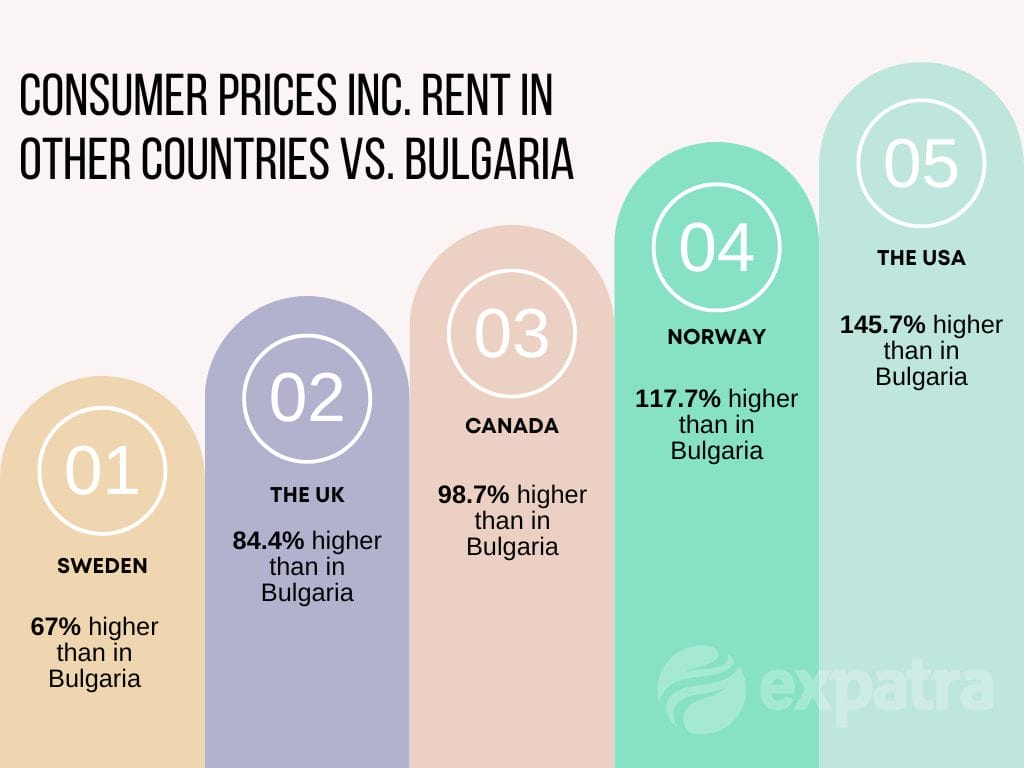
Housing
Renting a good two-bedroom apartment in a nice neighborhood of Sofia will cost you around €920, and a 3-room apartment - €1,200
A country house in a remote village could be yours for as little as €27,000, and you could heat it for around €250 a month.
Here is the average rent in various locations in Bulgaria:
| Location | Average rent |
|---|---|
| Sofia | €750-1,100 |
| Plovdiv | €450-700 |
| Varna | €500-700 |
| Burgas | €460-9000 |
| Veliko Tarnovo | €460-800 |
| Blagoevgrad | €350 - 560 |
Monthly costs
Here is a breakdown of various monthly costs for a couple:
- Groceries: around €170-€250.
- Dining out: Eating out at a mid-range restaurant can cost approximately €25-€30 for a meal for two people. However, there are also plenty of affordable local eateries where you can enjoy a meal for around €10 per person.
- Utilities, including electricity, heating, water, and garbage, can vary depending on the size of your home and usage. On average, you can expect to pay around €100-€150 per month for these services.
- Public transport: A monthly pass for unlimited travel within the city costs around €25-€30 per person. Short rides in taxis usually cost between €3-€5.
- Internet: The cost of a high-speed internet connection is generally around €15-€25 per month, depending on the speed and provider you choose.
- Mobile: The average monthly cost of a mobile phone plan is between €10-€20, which usually includes a given amount of data, calling minutes, and text messages.
Bulgaria as a retirement destination
According to the Expatra Global Retirement Index, Bulgaria is in the top 30 best retirement destinations in the world.
The index is based on the Expatra Global Retirement Survey that asks international retirees to rate their retirement destination’s infrastructure, climate, ease of settling down, value for money, friendliness, and other aspects of life in their retirement destination.
Here's how Bulgaria scores:
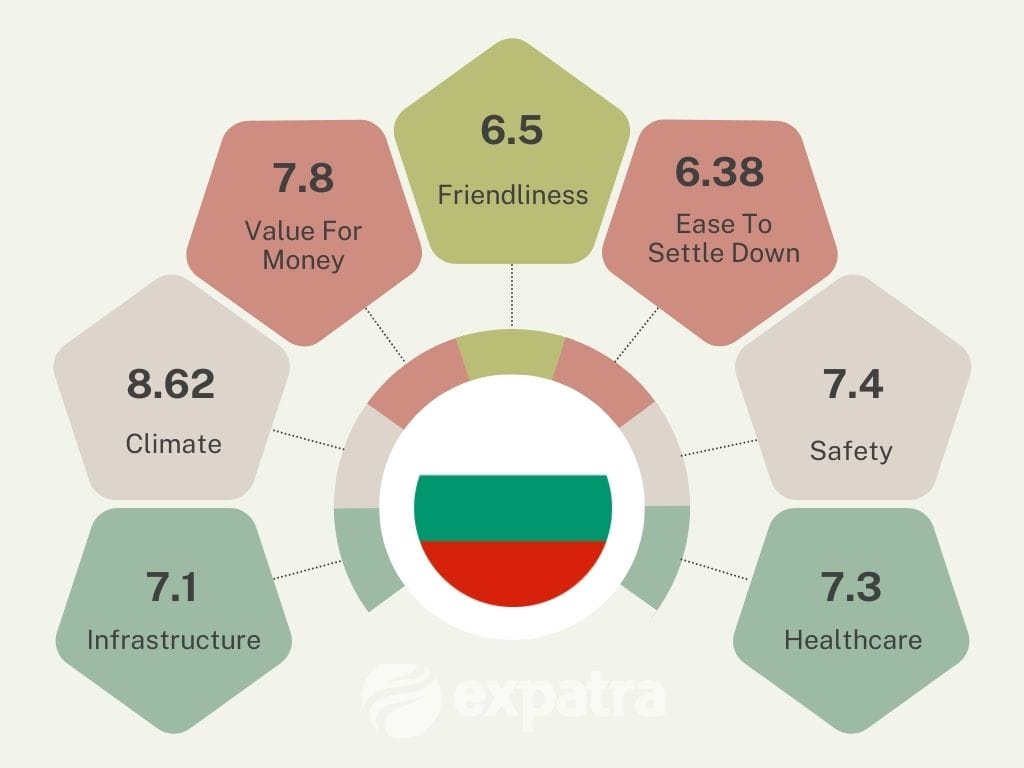
Main highlights of Bulgaria as a retirement destination:
- Affordable property and cost of living
- Good climate
- Affordable retirement residency
- Great location if you would like to explore Europe
D-Type retirement visa and residency
If you are retiring to Bulgaria, you need to apply for a D visa sub-category "pensioner" in a Bulgarian consulate in your home country.
Eligibility requires non-EU citizenship, receipt of a pension under Bulgarian law, retirement in the applicant's home country, and proof of adequate funds (6x Bulgarian minimum wage a month).
The application involves forms, a passport, proof of accommodation, medical insurance, and a police clearance certificate.
Processing takes 4-8 weeks, and the visa, valid for 6 months, must be exchanged for a residency card before expiry.
Tip: Acquiring or renting property in Bulgaria is common and enhances residence permit chances.
Once the D visa is obtained, you can enter the country and apply for a "Residence for Pensioners" temporary residence permit at the Migration Directorate.
Travel connections
Bulgaria is relatively well connected for international travel, mostly by air.
International flights
Sofia Airport is the main international airport in Bulgaria, offering flights to various destinations worldwide, including Vienna, Abu Dhabi, Dubai, London, Frankfurt, and other European and Middle Eastern cities.
Varna and Burgas airports mainly serve European destinations.
Trains
There are a few rail routes available, including:
- Bucharest, Romania: the journey takes approximately 9 hours.
- Istanbul, Turkey: direct trains from Sofia to Istanbul, Turkey take around 10-12 hours.
- Belgrade, Serbia: another option is to travel by train from Sofia to Belgrade, Serbia. The journey takes around 7-8 hours.
Bus routes:
- Istanbul, Turkey: Several bus companies operate between Sofia and Istanbul. The journey takes approximately 8 hours.
- Thessaloniki, Greece: You can also travel by bus from Sofia to Thessaloniki, Greece. The journey takes around 6 hours.
Real estate in Bulgaria
We strongly recommend renting a property in Bulgaria first before you buy. Renting will allow you to get familiar with the area and make sure it works for you all year round.
The rate of homeownership in Bulgaria is high, at close to 90 percent, with many Bulgarians inheriting land and even a second home.
Refurbishments are to be expected if you buy. Still, a common warning on forums is to get local advice and recommendations when it comes to builders and never to pay everything upfront.
Here is what is available for purchase and the average price:
Apartments: Apartments are widely available in various sizes and locations. On average, you can find apartments ranging from €50,000 to €120,000, but prices can vary significantly depending on the city and neighborhood.
Seaside apartments: Bulgaria's coastline is a popular destination for property buyers. Seaside apartments offer beautiful sea views and access to various amenities. The average price of seaside apartments can range from €70,000 to €150,000 or more, depending on the location, proximity to the beach, and property features.
Houses: Houses in Bulgaria come in different styles, sizes, and locations. On average, you can find houses ranging from €70,000 to €200,000 or more.
Villas: Villas are spacious, luxury properties often preferred by those seeking a high-end lifestyle. On average, villas can range from €160,000 to several million euros.
Tip: When buying, don’t rely on local friends to help with the language - hire local, English-speaking notaries and attorneys.
Removals and moving to Bulgaria
You can ship your belongings to Bulgaria by sea, air, or land. If you are moving from Europe, it’s close enough to drive your stuff over - and pets - yourself, too.
As an EU country, standard EU rules apply to removals; do note you may need to list serial numbers and brands for all electrical appliances.
Here's how much it costs on average to ship a full container to Bulgaria:
| Country | Shipping cost (USD) |
|---|---|
| UK | $3000 - $5000 |
| US | $4000 - $6000 |
| Canada | $3500 - $5500 |
| Germany | $3500 - $5500 |
Read more in Expatra’s guide to international removals.
Healthcare in Bulgaria
Healthcare in Bulgaria is universal and financed by compulsory health insurance contributions.
As in any other EU country, in Bulgaria, you will need EHIC to access public healthcare as a Bulgarian resident.
To enroll in the Bulgarian healthcare system, you must first get your residency.
Public healthcare
To join the public healthcare system, you will need to register with the National Health Insurance Fund and pay compulsory contributions.
This will give you access to a GP, referrals to a specialist, and medicines at reduced prices or for free. You can choose your GP, so most expats tend to choose a local and/or English-speaking doctor.
Private healthcare
Private health coverage is highly advisable, and although plans are expensive in comparison to the cost of state medical treatment, they are still cheaper than in other countries.
A basic plan from Uniqa for a couple under 70 years old can cost around €200 a year, depending on the age and health conditions.
Many expats prefer to have international health insurance. To make sure you get the best value for money, compare international health insurance options from various providers to find the best deal.
Education and schools
Expats in Bulgaria have the option of sending their children to state-run schools. However, due to the language barrier and the conditions of the local schools, many expats prefer international schools.
Here are some of the top international schools in Bulgaria:
- Anglo-American School of Sofia (AAS) offers a well-rounded pre-kindergarten to grade 12 education. The school follows the American curriculum.
- American College of Sofia (ACS) is a prestigious international institution offering education from grades 8 to 12.
- American English Academy (AEA) in Plovdiv provides a comprehensive American curriculum. It offers education from pre-kindergarten to grade 12.
- Anglo-American School of Varna (AASV) offers a high-quality education based on the American curriculum from pre-kindergarten to grade 12.
- International School of Sofia (ISS) offers pre-kindergarten to grade 12 education, following the International Baccalaureate (IB) curriculum.
Bulgarian taxes for expats
In Bulgaria, you should expect to pay personal income tax and homeowner’s tax, as well as vehicle tax and a fee for rubbish collection.
Your pension and other incomes will be taxed in Bulgaria at a flat rate of 10 percent. There is also a tax-free allowance of €4,050 (£3,460) per year.
Taxes that expats in Bulgaria may be required to pay include:
- Personal Income Tax:
- Flat rate of 10% on income earned in Bulgaria.
- Social Security Contributions:
- Health Insurance: 8% of the taxable base, with a maximum monthly income cap.
- Pension Insurance: 12.9% of the taxable base, with a maximum monthly income cap.
- Unemployment Insurance: 1.2% of the taxable base, with a maximum monthly income cap.
- Additional Social Security Contributions may also apply.
- Corporate Income Tax:
- Flat rate of 10% on the taxable profit of Bulgarian companies.
- Value Added Tax (VAT):
- Standard rate: 20% - applies to most goods and services.
- Reduced rates: 9% and 5% - apply to specific goods and services.
- Property Tax:
- Levied on the ownership of real estate properties at a local level. Rates may vary depending on location and property value.
- Vehicle Tax:
- Levied on registered vehicles and based on engine size, age, and type of fuel.
Public transportation
Major cities such as Sofia, Plovdiv, Varna, and Burgas have well-developed transport systems, including buses, trams, and trolleybuses.
There is also a metro system in Sofia.
A single ticket for buses, trams, or trolleybuses typically costs around €0.82 (1.00 BGN).
You can get discounted fares for multiple trips if you purchase a rechargeable transport card.
In rural areas, the availability of public transport can be limited compared to urban regions. While buses connect small towns and villages, they are not that frequent. So having a car can be beneficial.
Driving a car in Bulgaria
Heavy snow in winter and potholes mean you will probably want a four-wheel-drive vehicle.
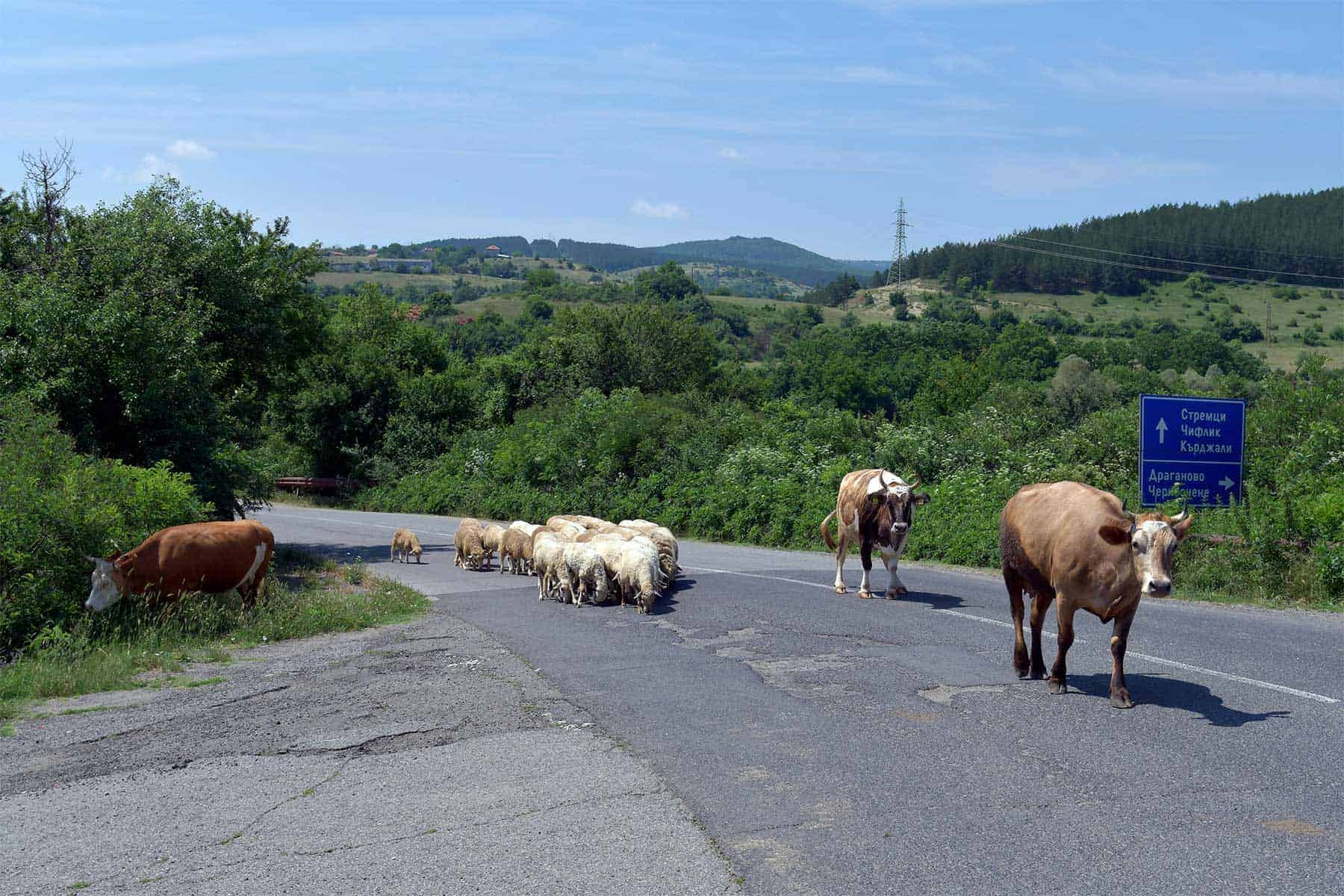
The LIMA app can help you with traffic and road conditions.
If you are resident in Bulgaria, you should exchange your home country license for a Bulgarian driving license at your nearest traffic police department within six months after first registering with Bulgarian authorities.
The law is strict when it comes to drink-driving, with almost zero tolerance (0.05 percent blood-alcohol limit), and you could face losing your license and even jail time.
When driving in Bulgaria, carry your passport or ID card, driving license, registration card, insurance documents, and vehicle inspection card.
Internet and mobile connectivity
Major cities in Bulgaria, such as Sofia and Plovdiv, have really good and reliable internet and mobile connectivity.
The options include:
- DSL (Digital Subscriber Line): up to 100 Mbps from $20 per month
- Cable internet: up to 500 Mbps from $25 per month
- Fiber optic: up to 1 Gbps from $40 per month
- Mobile broadband: up to 300 Mbps from $15 per month
In rural areas, the options might be fewer, and the coverage may be a bit patchy. 5G is available across the country; however, it drops to 4G in some areas, even in the digital nomad heaven of Bansko.
On the whole, however, Bulgaria has quite a good telecommunication infrastructure.
How to open a bank account in Bulgaria
We get so many emails about this subject, and it has taken a lot of research to get to the bottom of this question.
From our contacts and from forums, the answer is yes: you can still open a Bulgarian bank account as a non-resident (although one Bulgarian, who had helped a non-resident Greek contact open an account recently, told us it was a “challenging task”).
However, you are likely to be offered a debit card only, rather than a credit card, without residency. Even then, you may be asked for proof of income being paid into the bank for up to six months.
You will need a Bulgarian bank account in order to buy property, residents told us.
It may take up to 14 days for your application to be approved, after which you may still have to return to the branch to actually open the account.
You must put a minimum amount into the account for it to be opened, which differs depending on the area. For instance, we were told in Vratsa, you can open a bank account with 450 lev, but in Shumen, it is 1,000 lev, and in Veliko Turnovo, it is around 3,000 lev. You can draw the money out once the paperwork is done, we were informed.
You may need to take a translator and/ or lawyer with you if you don’t speak Bulgarian, although one person told us that the teller at the branch in Sofia they went to “spoke good English”. Also, note that most banks will not offer joint accounts.
DSK Expressbank and Postbank were both recommended as Bulgarian banks for foreigners.
Bulgaria had expected to join the ERM-2 mechanism - the ‘waiting room’ to full euro membership - in 2020 and adopt the euro in 2023, but has now said it is “obliged to slow down the tempo” because of concerns about the exchange rate to the common currency and opposition within the country.
Where to live in Bulgaria
Unlike other retirement hotspots in Europe, Bulgaria does not have obvious expat enclaves. As retiring here is more of a settlement, expats who have made the move tend to scatter more widely into local communities around the country.
Sofia
Several thousand international expats live in the capital - the cheapest city in Western Europe - either in apartments in downtown areas such as Doctor’s Garden or in suburbs such as Boyana, Dragalevtsi, and Bistritsa.
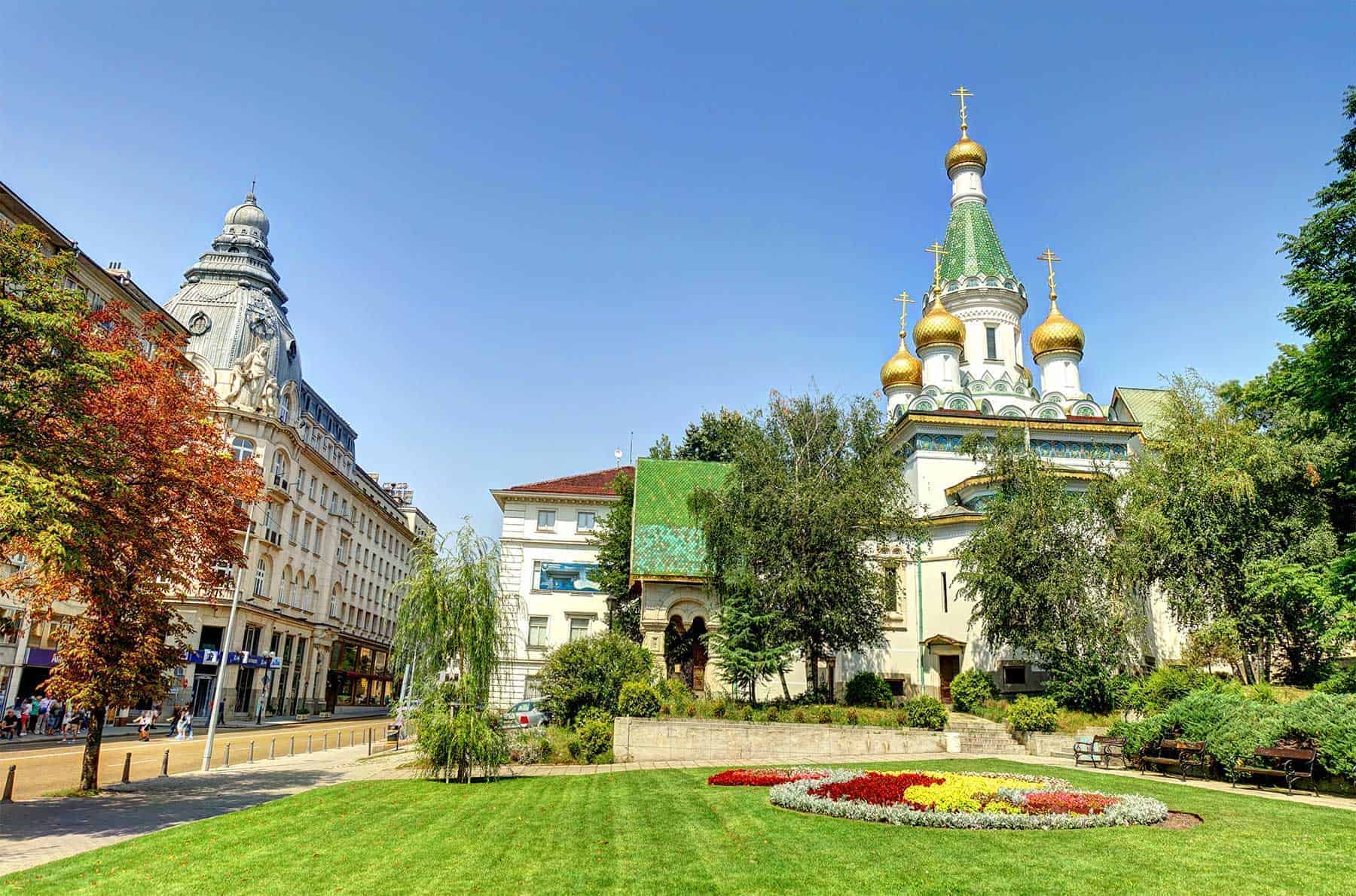
Living in Sofia comes with all the benefits of being in a big city while giving you a sense of a slower, more relaxed life.
Many of the expat city-dwellers are workers, and the city boasts a thriving start-up scene. The city center is small enough that no car is required if you live downtown: taxis are cheap, and there are plenty of trams.
Bankya
To the west of Sofia is the spa town of Bankya, about 20-30 minutes away. Many people commute to Sofia from here. It is thought that up to a fifth of the 30,000-strong population is foreign.
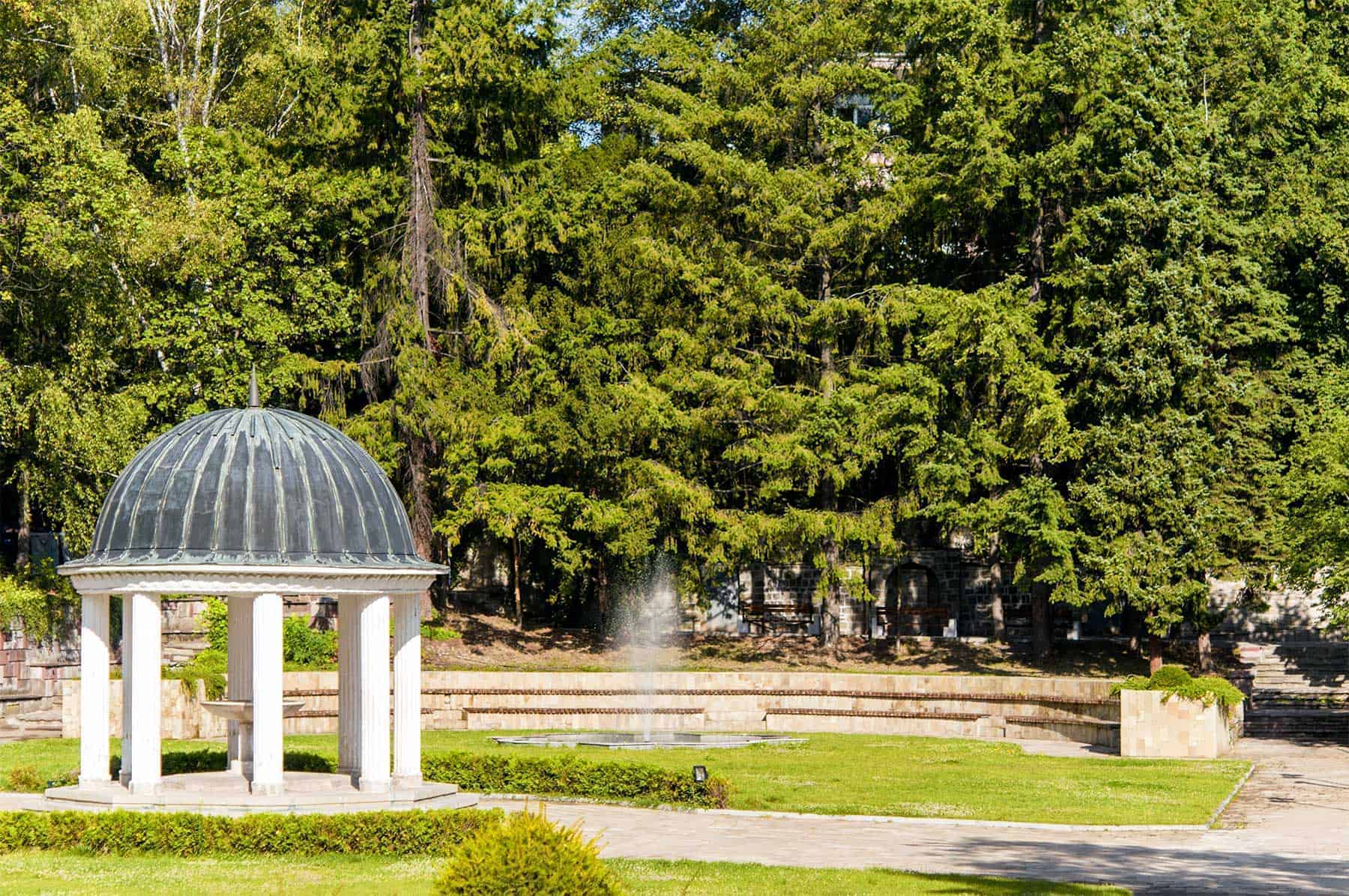
Bansko
The ski resort of Bansko (and nearby spa village Banya) has obvious charms. It’s a small town nestled at the foot of the Pirin mountains, with a low cost of living, making it attractive to those ski fans otherwise eyeing up France, Italy, and Switzerland.
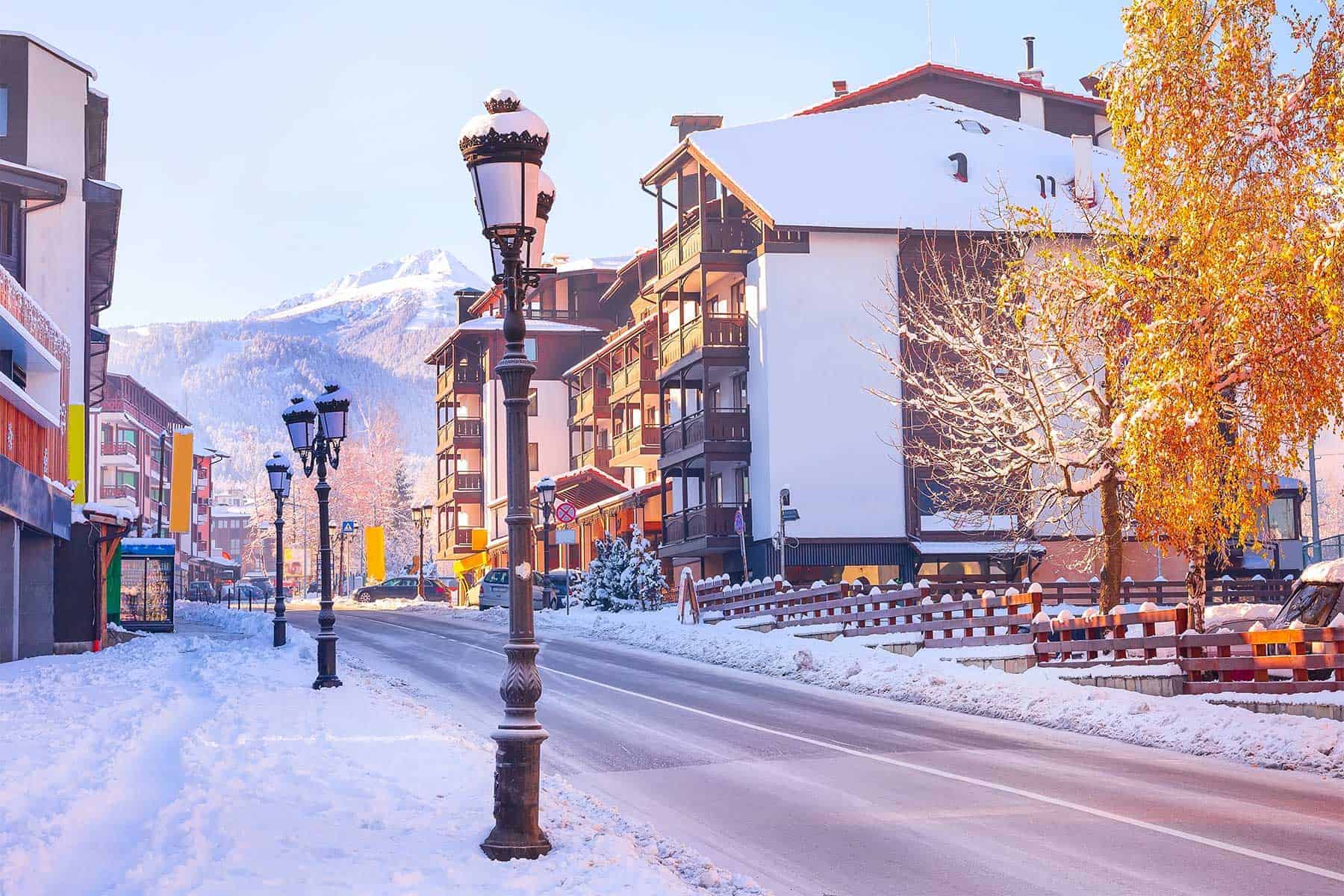
However, it has not lived up to the bubble hype, with massive over-development, which has led to more tourism diversification into golf greens, climbing centers, and spa hotels. Other ski resorts include Pamporovo and Borovets.
Varna
A hugely popular coastal city on the Black Sea with its own direct budget flights from the UK, this beach town has also become a business hub. Expats choose to live in Varna for many reasons; however, the main one is the wonderful golden sands of Varna's coastline.
Other Black Sea resorts include Golden Sands, Sunny Beach, St Constantine, and Helena.
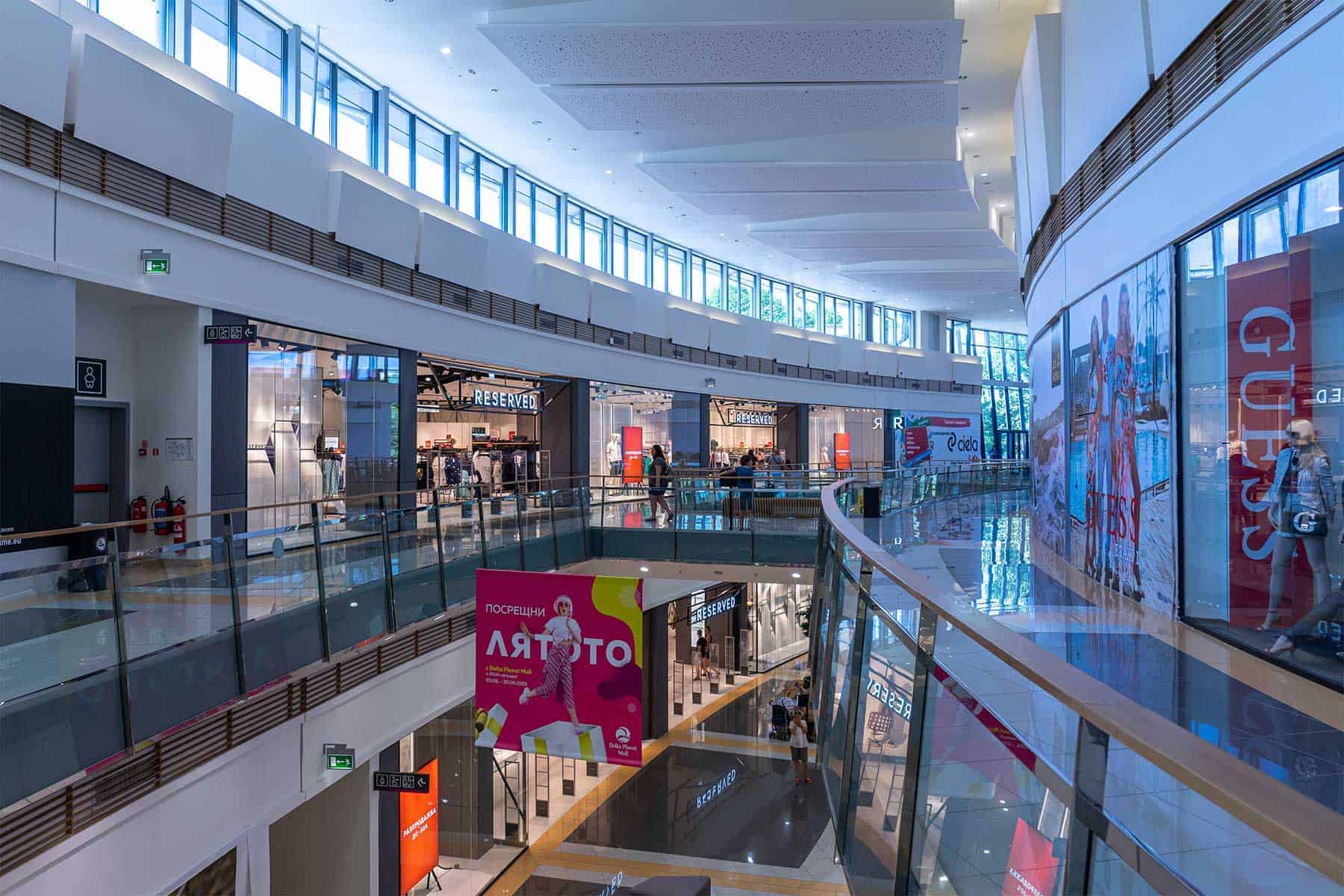
Plovdiv
Bulgaria’s second city and Europe’s 2019 capital of culture. Built on seven hills, it has a partially restored Roman stadium and an open-air Roman theatre, now used to stage open-air concerts and plays.

As the country is becoming more popular with expats, they discover other locations as well. Read our Best Places To Live In Bulgaria As An Expat for a detailed overview of the most popular locations.
Expats in Bulgaria
Bulgaria is a popular choice for over 60,000 expats, including retirees, professionals, and families.
Its affordable living costs, pleasant climate, and cultural activities make it especially appealing for retirees. You will find the largest expat communities in Sofia, Varna, and Bansko.
Leslie Grantham: Bulgaria’s most famed Briton?
Late EastEnders actor Leslie Grantham had to learn Bulgarian to star in the Bulgarian TV series The English Neighbour in 2010, about a retired British chemist who sets up a home in the fictional village of Plodorodno.
After divorcing and having become familiar with the country and made friends, he himself moved to Bulgaria and bought an apartment, only returning to the UK shortly before his death in 2018.
If you are trying to familiarise yourself with the country, it’s worth watching some episodes.
Living in Bulgaria after Brexit
The existing rules, agreements, and arrangements between Bulgaria and the UK changed after Brexit. To keep informed, check our Living In Europe After Brexit guide on a regular basis. It features links to official resources containing major Brexit information.
Britons will have to go through the immigration procedures set for non-EU citizens. Bulgarian rules require immigrants to demonstrate they can support themselves financially, although the Bulgarian prime minister has publicly welcomed British migrants.
Pros and cons of Bulgaria
Spend any time checking forums, and you’ll find fairly even numbers of British expats extolling Bulgaria’s virtues or hauling it over the coals.
Over-sold as a location after its entry into the European Union in 2008, a real estate bubble quickly formed and burst in Bulgaria, which has left some out of pocket, particularly if they invested in big new tourist developments on the coast or in the ski resorts.
On the other hand, many have fallen in love with Bulgaria’s old-world charm and tradition, some likening it to 1950s Britain.
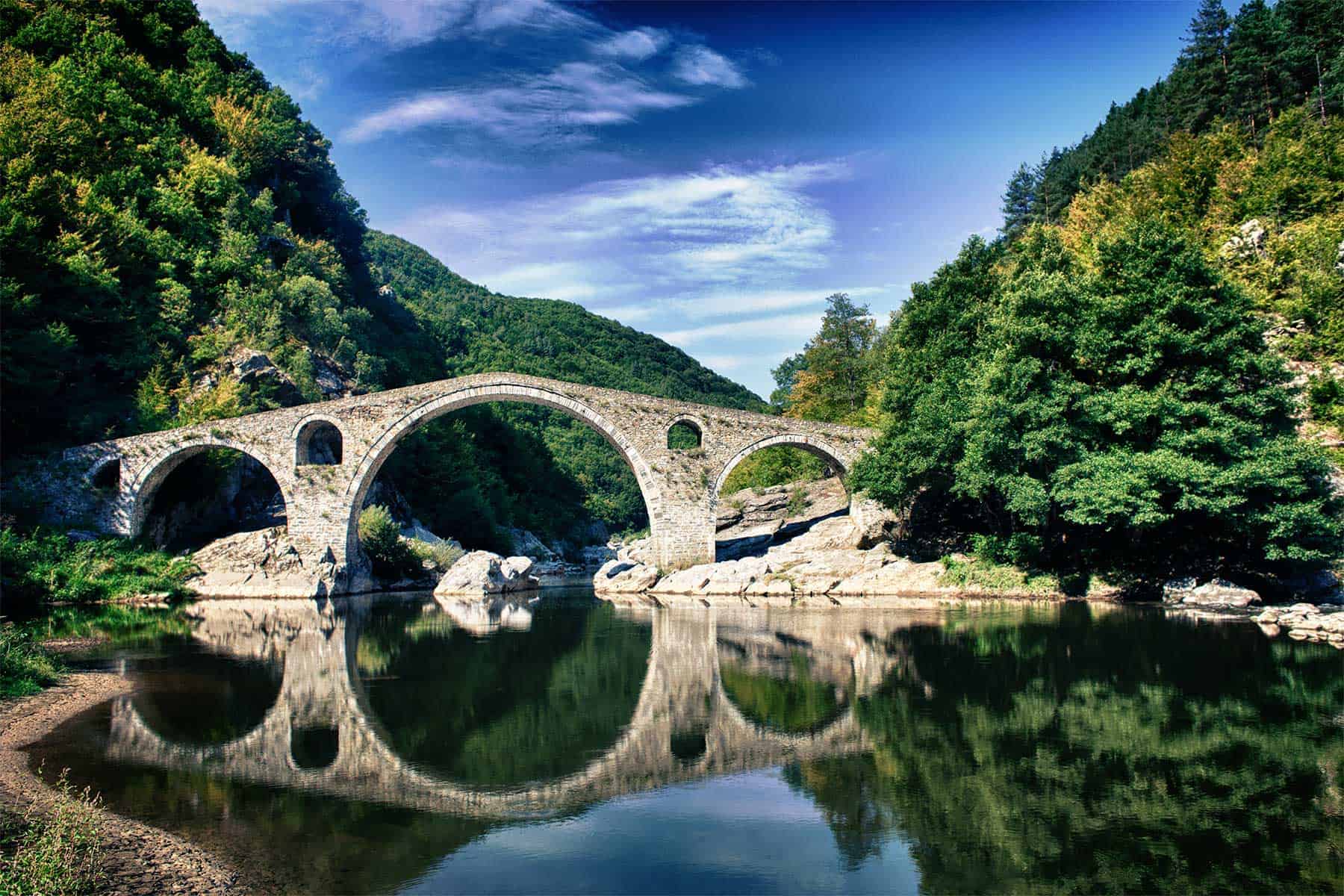
You’ll find plenty of ‘horse-and-cart villages’ alongside the potholes in what is the EU’s poorest member state.
If you earn a foreign income or pension, the cost of living is incredibly affordable, and property prices have settled from their wild peaks.
However, buying property can be hugely complex; red tape means a small admin task can take all day, and both general customer service and government staff’s attitudes get a good bashing.
Read more in our full article, The Pros And Cons Of Living In Bulgaria.
Things to know before you move
If you’re considering retiring to Bulgaria, you really should start language lessons. You won’t get far without at least elementary Bulgarian, and you should familiarise yourself with the alphabet.
Get to grips, too, with some Bulgarian etiquette: don’t point your index finger, don’t ever slap someone on the back, and remember that you nod ‘no’ and shake your head for ‘yes’. There’s a great etiquette guide on the Bulgarian Embassy of London site.
Final thoughts on living in Bulgaria
If you’re looking for a quieter pace of life, fresh produce, and a beautiful beach-to-mountain backdrop at a lower cost than France or Switzerland, Bulgaria could be the ideal country for you. It will require more work to settle down than, say, Spain, but that work could pay off with a whole new lifestyle.
You might find useful:
- The Pros & Cons Of Expat Life In Bulgaria.
- The Ins And Outs Of Living In Sofia, Bulgaria As An Expat.
- See our Guide To European Golden Visas for alternative residency options.
Helpful external links:
- Bulgaria visas and residency for US citizens - bulgaria-embassy.org.
- List of Regional Migration Directorate offices.
- Living in Bulgaria after Brexit (for UK citizens) - Bulgarian Ministry of Interior.
Secure Peace of Mind with Best-Value International Health Coverage
International Citizens Insurance provide free, no-obligation quotes from the leading international health insurance providers with plans tailored to meet your needs. Trusted by thousands of expats worldwide.




